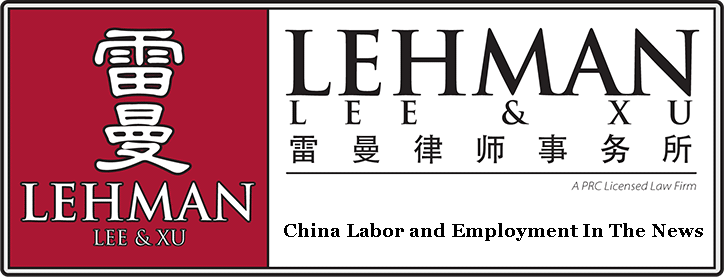Since China's top legislature passed a new exit and entry law on June 30, which stipulates harsher punishments for illegal entry, stay or employment of foreigners, there is a growing concern among the expat community whether an "anti-foreigner" sentiment is spreading. Such worries are unfounded. However, the Chinese authorities should try to make the visa-related procedures more convenient.
The "three illegals" as they are known - the illegal entry, illegal stay (including non-registration of address and exceeding visa validity) and illegal work (including business activities and working without an appropriate visa) - have become a hot topic since Beijing launched a clampdown campaign in May.
In the past couple of months, there have been reports in the media of both criminal and offensive behavior by foreign individuals and suggestions that Westerners are in danger of being attacked by locals. Yet the truth is locals and foreigners in general live harmoniously together.
So should the new rules be seen as a changing attitude toward foreigners and are the rules more burdensome than those of developed nations? The answers are yes and no. China's largest trading partner is the European Union and there is much to be said for greater engagement between the citizens in EU and China. Equally the EU has important relationships with the United States. Yet contrast the visa policies for EU passport holders visiting the two leading world economies. Most EU citizens can enter the US under visa-waiver policies, provided they have registered their details electronically once every two years for pre-approval on inbound international flights. Once there they don't have to go to the local county sheriff to register where their are staying.
However, foreigners should understand that China is the land of the hukou, and the concept of household residence permits among its large population is well ingrained. With city authorities working hard to offer residence rights to migrant workers from the countryside, they are hardly likely to allow foreigners to roam unrecorded. We have to accept that. It is not difficult to complete the formalities at a local police station, albeit there is a lot of paperwork, and visa that will soon expire can be extended. So there really is no excuse for staying illegally, something all other countries try to prohibit.
The documentation China requires for various visa categories is relatively simple and inexpensive, if carefully followed, especially when compared with a visa like the US' notorious L-1 visa, a non-immigrant visa which allows companies operating both in the US and abroad to transfer certain classes of employee from foreign operations to the US for up to seven years. This requires a significant amount of paperwork, inspection and cost. However, once obtained, the L-1 visa gives three years' unlimited entry and exit and indefinite duration of stay, is routinely extended to seven years and forms a key stage in getting the famous green card if desired.
China's approach is more "easy in, easy out" as the authorities regard one year as the maximum length of any visa, having once had a two-year visa myself, it is a pity visas of such length were suspended in 2008.
We should acknowledge that it is hard to separate a country's visa policy from those imposed by countries that its nationals seek to visit, reciprocity is part of the picture, so too is the greater revenue that comes from short-length visas with regular renewal or extension fees.
The contribution of foreigners to China should not be doubted. In modern times, it is recognized that after China's reform and opening-up, overseas entrepreneurial expertise greatly aided China's economic progress. China today is the second largest recipient of foreign direct investment, and foreign firms want to bring some key staff with that investment. English is the language of international business and learning it here from a native speaker is in demand and beneficial to Chinese enterprises "going out". China rightly wants to expand cultural tourism and increase the understanding the world has of China. It also wants to expand international education exchanges. However, foreigners must abide by China's laws and abide by its visa policies.
The authorities should make sure it easy and inexpensive for foreigners to get the appropriate visas or to extend them, in an era where, globally, many travelers simply don't need visas. With the right approach it will be win-win.
The author is an economist and director of China Programs at CAPA International Education, a US-UK based organization that cooperates with Capital Normal University and Shanghai International Studies University.
Web link:
http://www.chinadaily.com.cn/opinion/2012-07/09/content_15559843.htm

